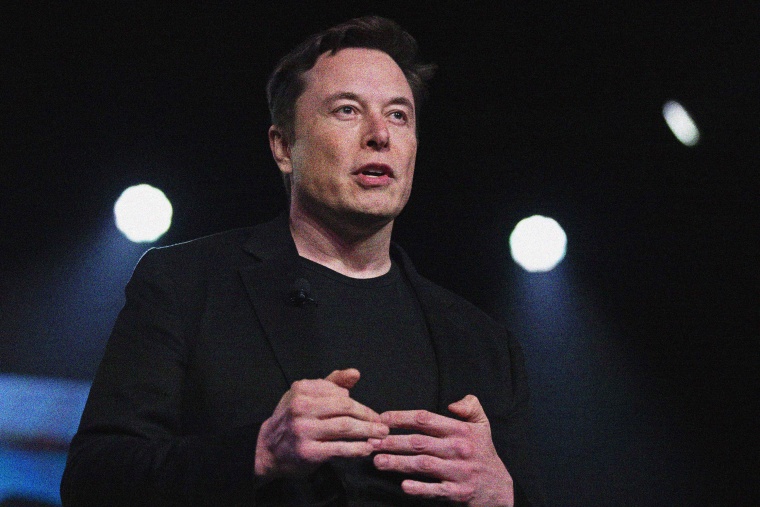Tech billionaire Elon Musk has come under fire from Ukraine after it emerged he thwarted a major attack on the Russian navy.
According to excerpts published by CNN, a soon-to-be-released biography of the SpaceX CEO claims that Musk secretly ordered his engineers to turn off his Starlink satellite network over Russian-occupied Crimea last year in order to prevent a Ukrainian drone attack on Russia’s naval fleet.
Musk was worried that the planned attack on the Kremlin’s Black Sea fleet, which occurred early in the war, could escalate tensions and potentially lead to nuclear conflict, according to the extract from historian Walter Isaacson’s upcoming book.
The claim was immediately met with criticism from Kyiv.
Mykhailo Podolyak, an adviser to President Volodymyr Zelenskyy, blasted the tech billionaire on X, formerly Twitter, which Musk owns.
“Sometimes a mistake is much more than just a mistake,” Podolyak wrote.
“By not allowing Ukrainian drones to destroy part of the Russian military (!) fleet via #Starlink interference, @elonmusk allowed this fleet to fire Kalibr missiles at Ukrainian cities,” he added.
Russia is known to have used its naval ships in the Black Sea to strike deep into Ukrainian territory and impose an effective blockade of the Ukrainian Black Sea coast, which is crucial to global grain shipments.
“As a result, civilians, children are being killed,” Podolyak said. “This is the price of a cocktail of ignorance and big ego. However, the question still remains: why do some people so desperately want to defend war criminals and their desire to commit murder? And do they now realize that they are committing evil and encouraging evil?”
Musk responded to the report, denying that he turned off the service but accepting he had chosen not to enable the attack as he did not want to become directly involved in the war.
“The Starlink regions in question were not activated. SpaceX did not deactivate anything,” Musk said in a response to a thread on X about the new book’s claims.
“There was an emergency request from government authorities to activate Starlink all the way to Sevastopol,” he said in another response, referring to a key port city in Crimea that is home to Russia’s Black Sea Fleet.
“The obvious intent being to sink most of the Russian fleet at anchor,” Musk added. “If I had agreed to their request, then SpaceX would be explicitly complicit in a major act of war and conflict escalation.”
According to the excerpts from the new biography, it meant that Ukrainian submarine drones packed with explosives lost connectivity as they approached the Russian ships, and saw them “washed ashore harmlessly.”
The book also delves into how Musk’s decision played out, alleging Musk spoke with top U.S. officials along with the Russian ambassador to the U.S.
NBC News has reached out to SpaceX and Zelenskyy’s office for comment.

Although drone strikes on Russian territory and Crimea have now become a nearly daily occurrence, it was not the case late last year. Moscow painted the peninsula, annexed from Ukraine in 2014, as a “red line” and threatened nuclear repercussions should it be attacked.
In the early months of the war, Musk’s Starlink satellite internet service became a lifeline to war-torn parts of Ukraine that lost connectivity due to heavy bombardment.
But the alleged use of the technology in combat operations appears to have changed that relationship.
“Starlink was not meant to be involved in wars,” Musk told Isaacson, according to one of the released book excerpts. “It was so people can watch Netflix and chill and get online for school and do good peaceful things, not drone strikes.”
Starlink bills itself as the “world’s first and largest satellite constellation using a low Earth orbit to deliver broadband internet capable of supporting streaming, online gaming, video calls and more.” It also says that it can provide connectivity “to the vast majority of the Earth’s oceans and seas.”
This is not the first time Musk’s actions have raised the ire of Ukraine and its supporters.
Last October, Musk asked the U.S. government to take over funding his Starlink satellite network in the country, saying it has cost SpaceX $80 million and will exceed £100 million by year end. But following criticism, the tech mogul backtracked and said he would continue to fund the service for free.
In June, the Pentagon agreed to purchase Starlink satellite internet terminals from Musk for use in Ukraine.
Musk also triggered a wave of condemnation when he suggested in a Twitter poll last year that Ukraine should cede Crimea to Russia and make other concessions as part of a peace deal.
His view that the warring sides should settle for a truce has angered many in Ukraine, but has been welcomed by the Kremlin. Moscow has pushed for peace negotiations on its own terms, but Zelenskyy’s government has refused to engage politically with Russia as long as President Vladimir Putin remains in power.
Former president and deputy secretary of Russia’s Security Council, Dmitry Medvedev, praised Musk’s decision not to allow Ukraine to use Starlink for the attack last year.
“If what Isaacson has written in his book is true, then it looks like Musk is the last adequate mind in North America,” Medvedevv, who has been one of the loudest pro-war voices in Russia, wrote on X.
“Or, at the very least, in gender-neutral America, he is the one with the balls,” Medvedev added.


